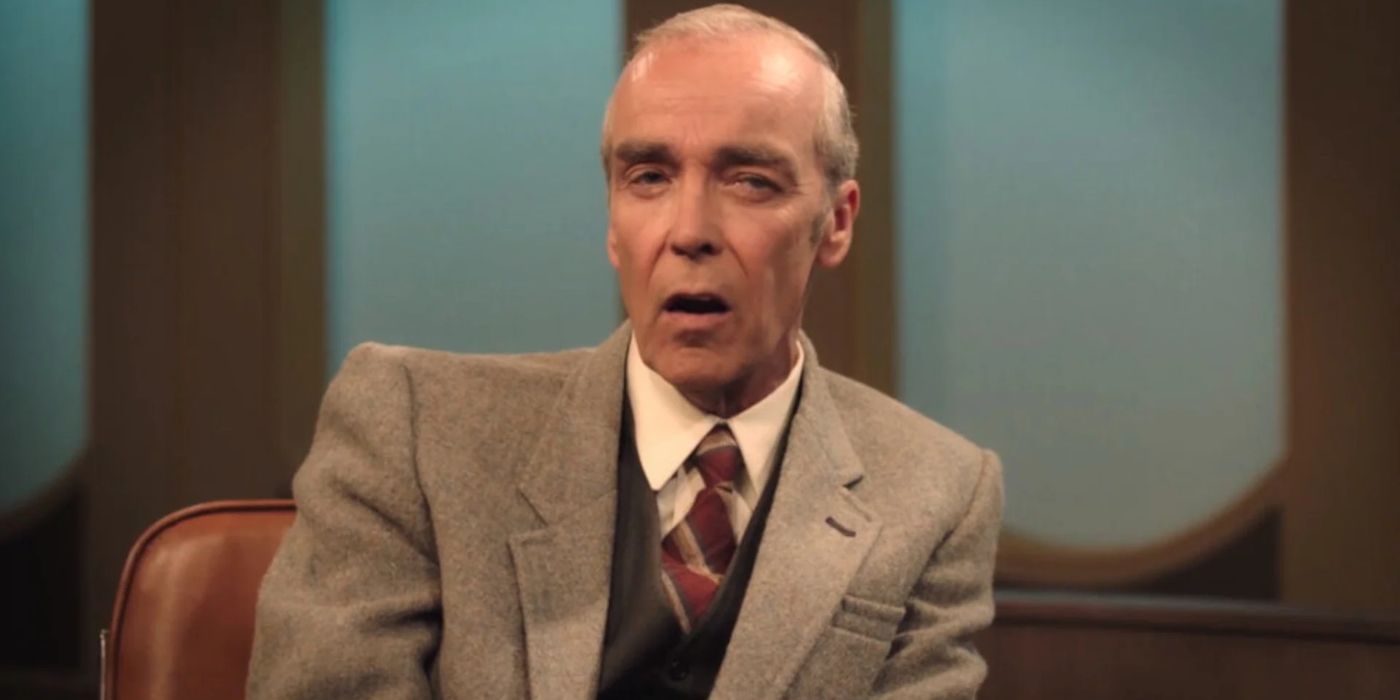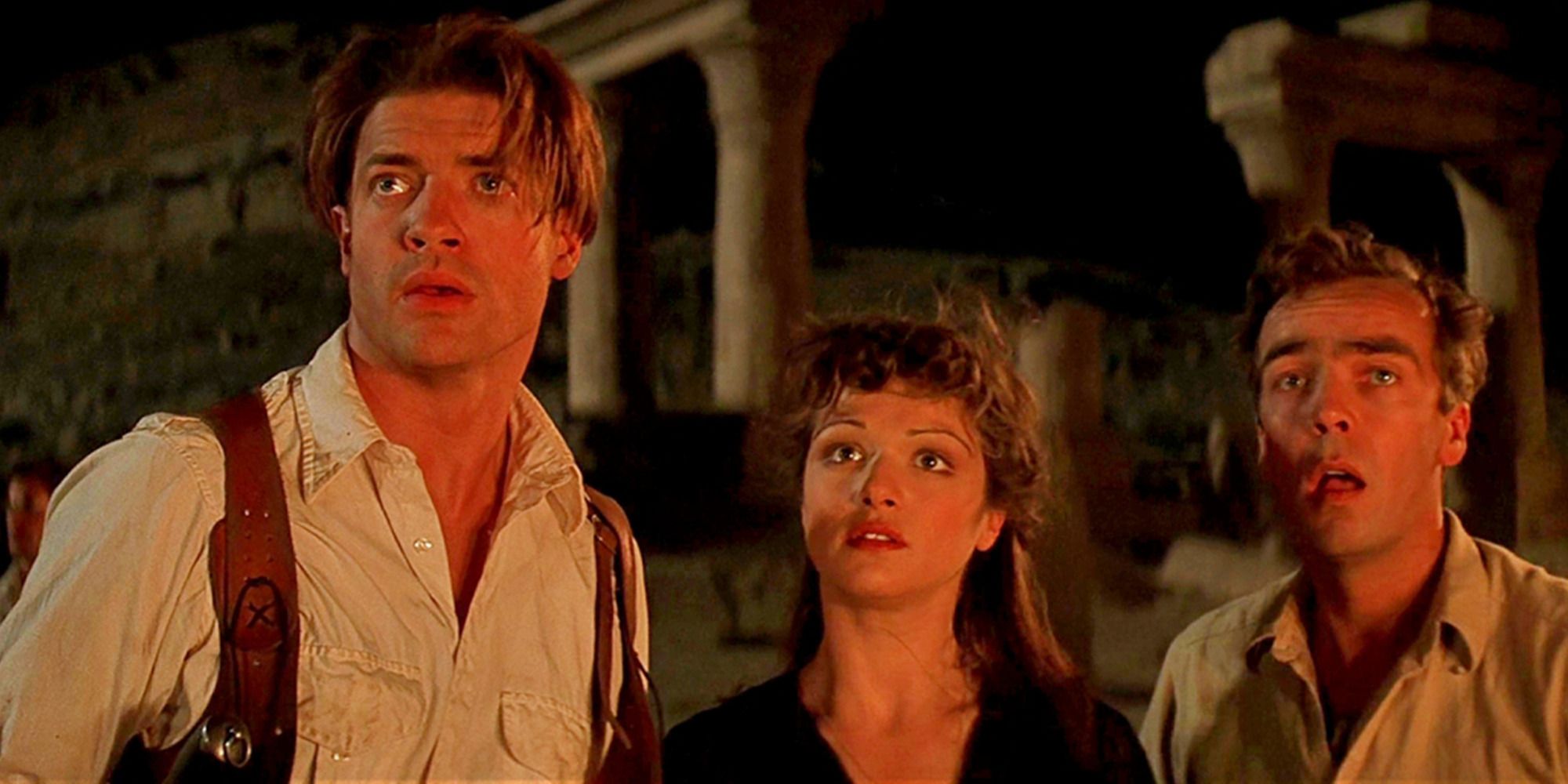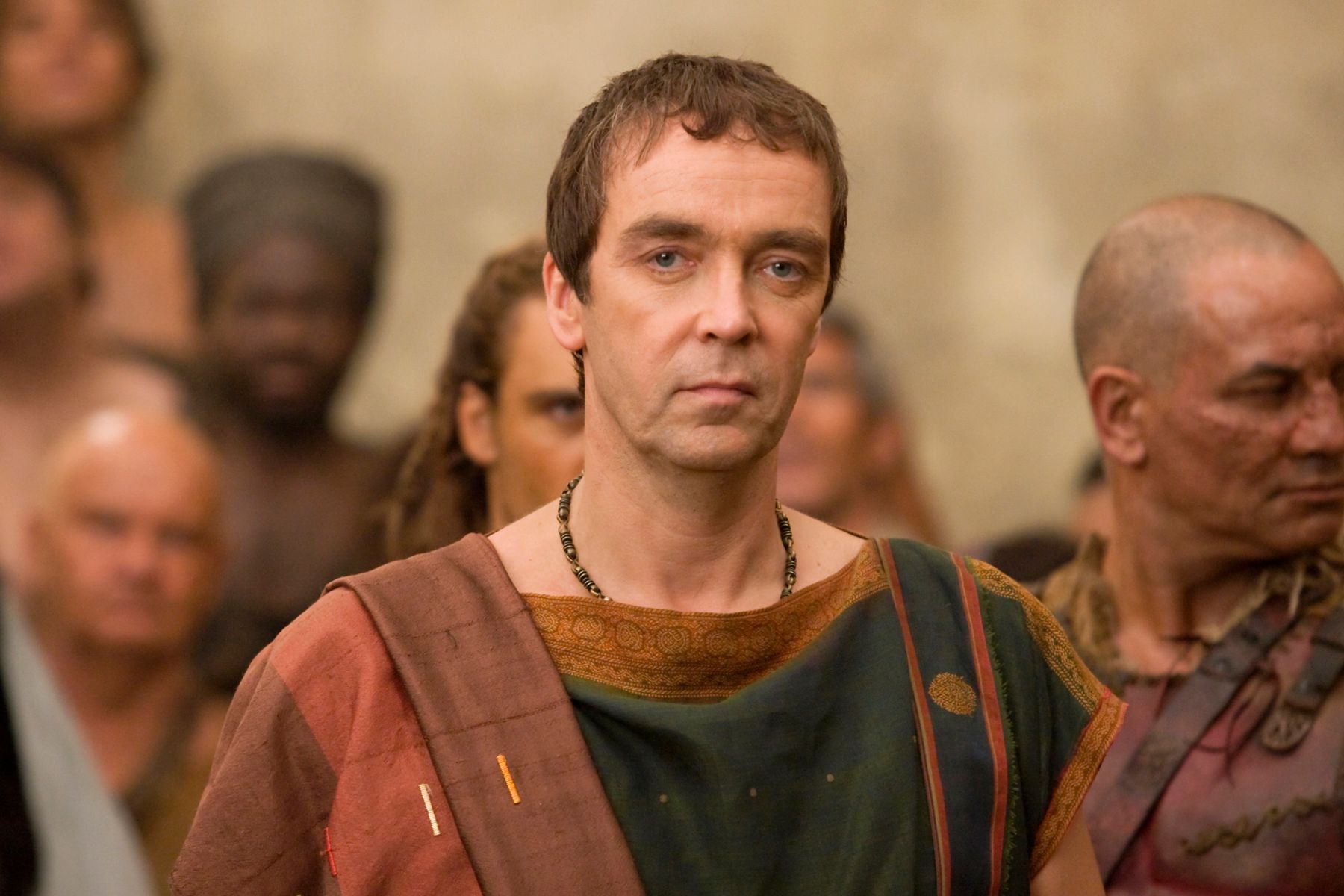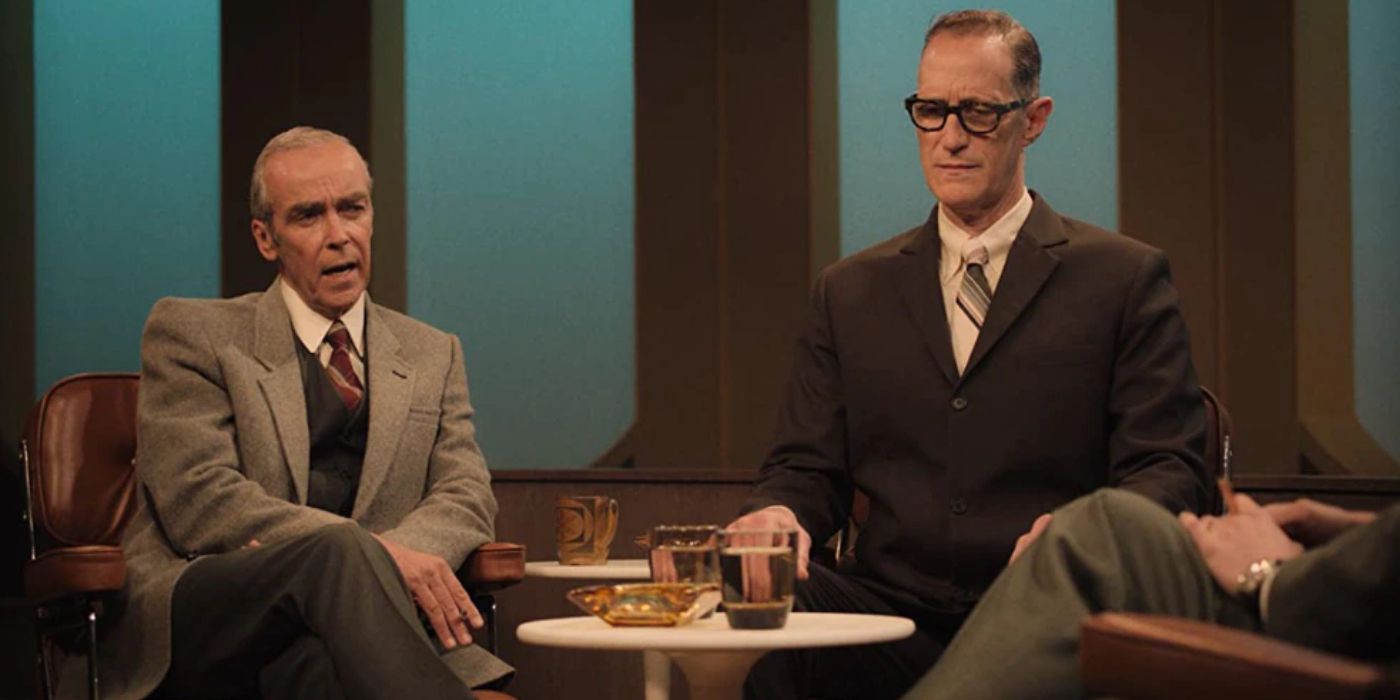Editor's note: The below contains spoilers for Episode 1 of The Last of Us.
Expectations were incredibly high for the pilot episode of The Last of Us, as it had to kick off what could potentially be a game-changing series for HBO. In the “streaming wars,” networks are desperate to have hit genre projects that attract loyal fandoms, and HBO is certainly looking for another “Sunday night sensation” with The Last of Us. Fans certainly had high expectations about how accurate showrunner Craig Mazin’s recreations of critical scenes from the game would be, but he surprised them with an opening flashback to a televised talk show in 1968 with the epidemiologist Dr. Neuman (John Hannah). While the scene itself may be a new addition, Hannah is an actor that audiences have been watching for decades.
In the pilot episode, “When You're Lost in the Darkness,” the scenes in 1968 set up the actual outbreak that occurs 35 years later when Joel (Pedro Pascal) loses his daughter, Sarah (Nico Parker), in Texas. In 1968, Dr. Neuman and Dr. Schoenheiss (Christopher Heyerdahl) holds a seminar in which they discuss the possibilities of a virus, and the effects that it could have on the global population. Neuman draws attention to the potential threat of fungi, as there is no adequate way to treat a fungal infection. While Schoenheiss doubts that a fungal infection would pose a serious threat since they can’t survive in the human body, Neuman believes they could evolve over time. It’s a chilling moment, as Neuman clearly believes his projection could be a reality.
We will have to wait until next Sunday night to see if the flashbacks to 1968 are a recurring framing device or just the setup for the pilot, but Hannah’s performance in the intro certainly started the series off in a captivating way. While the character might be a new one within the mythology of The Last of Us, Hannah is a long-serving character actor who has appeared in some of the greatest British comedies of all time, a few blockbuster film franchises, and several of the most popular network shows of the early 21st century. It’s a terrific comeback performance from one of the industry’s greatest character actors.
From British Weddings to Ancient Treasures
Although Hannah had a few brief roles in some British drama shows during the early 1990s, it was his breakout performance as the sensitive Matthew in Mike Newell’s romantic comedy classic Four Weddings and a Funeral that made him somewhat of a household name. While this was during the height of screenwriter Richard Curtis’ popularity, Four Weddings and a Funeral was considered to be an “elevated” take on the rom-com formula that inspired both audience passion and critical praise. Hannah actually received a nomination at the British Academy of Film and Television Awards, and the film itself took home Best Picture.
Hannah had a few other notable roles in the 1990s, including Gwyneth Paltrow’s love in Sliding Doors and the biographer Terry Swinton in the Denzel Washington boxing film The Hurricane, but it was his role as Jonathan Carnahan in The Mummy franchise that introduced him to a broad international audience. As the older brother of Evelyn (Rachel Weisz), Jonathan often comes to the aid of Rick O’Connell (Brendan Fraser) due to his experiences as a thief and traveler. However, he’s also a bit of a goofball, and serves as the comic relief throughout the franchise. Hannah reprised his role in The Mummy Returns and The Mummy: Tomb of the Dragon Emperor. Considering that the recent comeback of Fraser has inspired more appreciation for his work in the films, perhaps Hannah’s performance could also find more love from film fans that reflect on the trilogy’s highlights.
Quintessential Television Roles
While Hannah didn’t appear in as many modern classic films in the next decade (although he pops up in The Words, The Last Legion, and the 2018 remake of Overboard), he did seem to dominate television with roles on several of the most prominent genre shows of the era. With roles as the gladiatorial trainer Quintus Lentulus Batiatus on Spartacus: Blood and Sand, the witness Rutger Simon in Season 5 of Damages, and the villainous Mage that serves as the primary antagonist in season 2 of Dirk Gently’s Holistic Detective Agency, Hannah was never not busy.
Hannah joined the Marvel Cinematic Universe thanks to his recurring role as Holden Radcliffe on ABC’s Agents of S.H.I.E.L.D. While the original comic book characters are more overtly villainous, Hannah brought out a more sympathetic side to the character who genuinely wants to avoid collateral damage in his development of android soldiers. His surprising respect for Leo Fitz (Iain De Caestecker) helped blur the lines between good and evil, and created a more intricate dilemma as Fitz’s friends came to his aid. It was certainly an improvement on the source material, as “The Holden Radcliffe Corporation” is nothing but a soulless corporation that profits off of warfare in the original Machine Teen comics.
Hannah's Scene in 'The Last of Us' Is Small But Important
While the scene in The Last of Us is a brief one, it’s integral to the structure of the episode and helps ground the story in its own version of reality. Since the first outbreak occurred in 2003, there are certain elements of culture and world events from the last two decades that are absent from the timeline in 2023, where the main story takes place. Having a flashback to 1968 reminds the audience that this fictional version of reality is intended to have its own history, and the explanation of a scientific basis for the outbreak is a great way to explain the concept to those that aren’t as familiar with the original source material.
Even if it’s a smaller role, Hannah excels at conveying the necessity of research into the possibility of a fungal expansion. While fungi are not able to survive amidst the intense body heat of a human, invasive species adapt at a radical enough pace that it’s not beyond the realm of possibility to suggest that further evolution could occur. It’s a subtle way of encouraging the audience to listen to scientists that know what they’re talking about, and Hannah makes it even more powerful.
The Last of Us premieres new episodes every Sunday on HBO and HBO Max.




